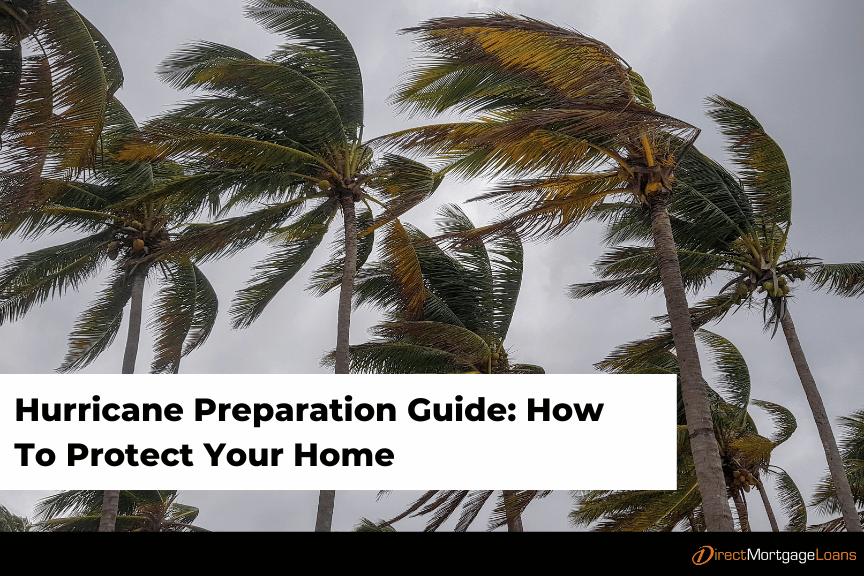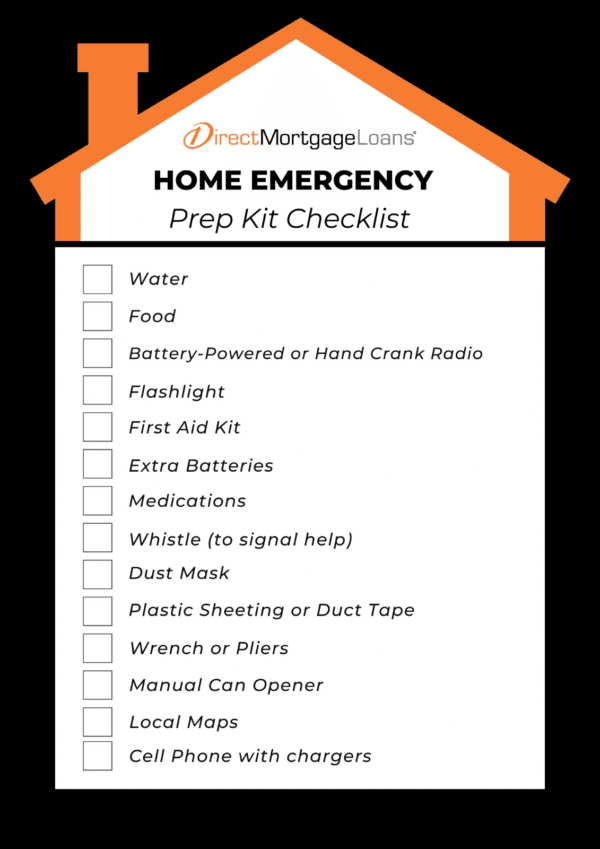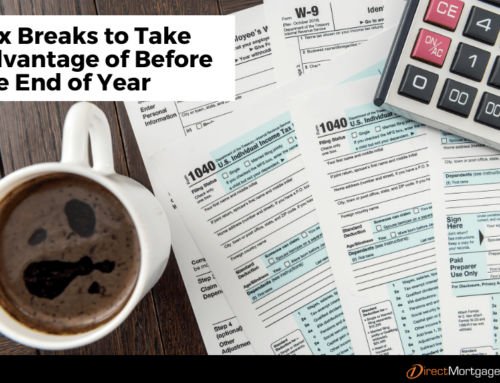Hurricane season is upon us, which can bring unpredictable winds and severe storms that can be catastrophic to both you and your home. It’s important to be prepared to keep both you and your loved ones safe in the event of a hurricane. Review the following Hurricane Home Preparation Tips to get started!
How do you prepare for a hurricane?
Create an Emergency Plan
To ensure you and your family are safe, in the event of a hurricane, it’s crucial to prepare and plan. Before hurricane season begins, write down any emergency phone numbers, gather emergency supplies, and designate a sheltered area in your home. Don’t forget to review this information with all members living in your home to make sure everyone is on the same page.
Make a Pet Safety Plan
If you have any pets, you should also include or create your own plan for them in case of a hurricane. Review Pet MD for 14 Hurricane Safety Tips for Pets!
Develop an Evacuation Plan
In certain situations, evacuating your home may be necessary for your safety. It is crucial to have an evacuation plan in place beforehand. Consider the following:
- Identify evacuation routes and destinations.
- Communicate the plan with all household members.
- Arrange transportation if needed.
- Prepare a checklist of essential items to bring with you.
Review Your Insurance Policy
Standard homeowners’ insurance covers the structure of your house for disasters such as hurricanes and windstorms. It’s important to understand the elements that might affect your insurance payout after a hurricane. Review and make any adjustments to your policy before a hurricane is present.
Gather Emergency Supplies
Stock up on supplies you may need during and after a hurricane. It’s possible for a hurricane to cut off your power and water supply, so it is always better to be prepared. Create an Emergency Supply Kit. See below for an example of a home emergency prep kit.
Preparing Your Home for a Hurricane
Protecting your property from the potential damage caused by hurricanes is crucial. Here are some measures you can take:
Assess the Vulnerability of Your Home
Before you begin preparing your home for a hurricane, it is essential to assess its vulnerability to potential damage. Take a walk around your property and identify any weak points such as loose roof shingles, damaged windows, or weak tree branches near your home. By identifying these vulnerabilities, you can prioritize your preparation efforts and focus on reinforcing the areas that are most susceptible to damage.
Secure Windows and Doors
Windows and doors are particularly vulnerable to hurricane-force winds and flying debris. To protect your home, consider the following measures:
- Install storm shutters or impact-resistant windows to provide an extra layer of protection.
- Reinforce existing windows with plywood or hurricane film to prevent shattering.
- Strengthen doors by installing heavy-duty bolts or braces.
- Seal any gaps around windows and doors with weatherstripping to prevent water infiltration.
Trim Trees and Remove Loose Objects
Overhanging tree branches and loose outdoor objects can become hazardous projectiles during a hurricane. Trim any branches that are close to your home and remove any loose items from your yard, such as patio furniture, toys, or gardening tools. These proactive steps will help minimize the risk of damage caused by flying debris.
Reinforce the Roof
A well-maintained and reinforced roof is crucial for protecting your home during a hurricane. Follow these steps to strengthen your roof:
- Inspect your roof for loose or damaged shingles and replace them promptly.
- Reinforce the roof with hurricane straps or clips to improve its resistance to high winds.
- Clear gutters and downspouts to ensure proper water drainage.
Secure Important Documents
Safeguarding important documents is essential to ensure their accessibility even if physical copies are damaged or lost. Follow these steps:
- Make Digital Copies: Create digital copies of crucial documents, including identification, insurance policies, property deeds, and other valuable paperwork. Scan or photograph them and save them in a secure location or the cloud.
- Store Physical Copies Safely: Keep the physical copies of these documents in a fireproof and waterproof container. Alternatively, consider renting a safety deposit box at a local bank to ensure their protection.
Know the Difference Between A Hurricane ‘Watch’ And ‘Warning’
According to the Centers for Disease Control and Prevention, if you’re in a location where a hurricane may affect you and your home, you should listen to National Weather Service Alerts on TV, radio, or review alerts online. Here are the two kinds of alerts:
Hurricane Watch
A hurricane watch means hurricane conditions (sustained winds of 74 miles per hour [mph] or higher) are possible in a stated area. Experts announce hurricane watches 48 hours before they expect tropical-storm-force winds (sustained winds of 39 to 73 mph) to start.
Hurricane Warning
A hurricane warning is more serious. It means hurricane-force winds are expected in a stated area. Experts issue these warnings 36 hours before tropical storm-force winds are expected in the area to give people enough time to prepare for the storm.
What to Do After a Hurricane
The clean-up after a hurricane can be overwhelming physically and emotionally after enduring a storm. Before you start cleaning, take the following precautions to ensure your safety.
Stay Safe
Be mindful of hazards such as downed power lines, broken glass, or weakened structures. Only return home or venture outside when it is deemed safe to do so by local authorities.
Assess the Damage
Inspect your property for any damage. Take photographs or videos to document the extent of the damage for insurance purposes.
Document Losses
Make a detailed inventory of damaged or destroyed belongings. Document the value, description, and condition of each item. This documentation will assist you when filing an insurance claim and ensure that you receive the appropriate compensation for your losses.
Contact Your Insurance Provider
Contact your insurance company as soon as possible to initiate the claims process. Provide them with all the necessary information and documentation of the damage. Be prepared for potential delays in the claims process due to the high volume of claims following a hurricane.
Cleanup and Repair
Begin the cleanup process by removing debris from your property. Exercise caution when using power tools or cleaning hazardous materials. If necessary, seek professional assistance to ensure a safe and thorough recovery.
Just remember, even miles from the coast, hurricanes can bring storm surges and heavy rains that could result in major damage to your home. Direct Mortgage Loans understand how important it is to protect not only yourself, but your home, from any natural disasters.
If you’re interested in talking about your home financing needs, contact Direct Mortgage Loans today. We would be happy to help answer any questions!







Leave A Comment
You must be logged in to post a comment.